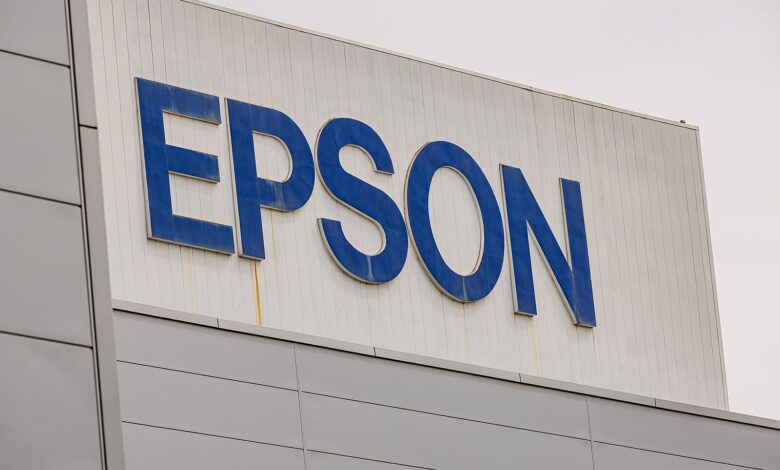
Epson, the Japan-based global technology company, has reported a 38.4% year-on-year surge in profit for the financial year ending 31 March 2025 (FY 2024), backed by rising demand for its sustainable print technologies and the successful consolidation of Fiery®, its digital front-end solution business.
Revenue rose 3.7% to ¥1.36 trillion (approximately KES 1.2 trillion), with profits hitting ¥89.6 billion (roughly KES 78 billion). Notably, Fiery® contributed around ¥10 billion (KES 8 billion) in revenue in the last quarter alone, alongside an estimated ¥2–3 billion in profits.

EcoTank and Fiery Drive Growth
Central to the company’s profit rebound were Epson’s Heat-Free EcoTank printers powered by its proprietary PrecisionCore printhead technology. The printers have seen wide adoption across Kenya in recent years, with businesses and educational institutions praising their lower ink and electricity costs.
Mukesh Bector, Epson’s Regional Head for East and West Africa, said Kenya was among the early adopters of the EcoTank line thanks to its efficiency and sustainability benefits. “Our FY 2024 numbers prove that sustainable technology is winning in the marketplace,” he stated, adding that the company is committed to pushing Kenya toward becoming a regional hub for green, AI-enabled manufacturing and digital learning.
Aligning with Kenya’s Digital and AI Strategies
Epson’s expansion plans for Kenya are strategically aligned with two major policy frameworks introduced in Nairobi over the past year:
- The Nairobi Declaration on Fostering a Connected and Empowered Africa (April 2024) – which calls for expanded broadband access, improved digital literacy, and inclusive innovation.
- Kenya’s Artificial Intelligence Strategy 2025–2030 – which lays out pillars for AI-ready infrastructure, secure data ecosystems, and stronger R&D and innovation capabilities.
Mr. Bector noted that Epson’s approach directly supports these goals. For example, its Heat-Free micro-factories are being piloted to demonstrate low-energy industrial printing, and the company plans to contribute to AI-enabled agricultural labeling projects aimed at improving food safety and traceability—core priorities of Kenya’s AI strategy.
A Broader Local Footprint
Epson is also ramping up its EcoTank in Schools programme, which supplies energy-efficient, curriculum-aligned printing solutions and teacher training support. The initiative is seen as a direct complement to the Nairobi Declaration’s focus on digital skills.
In FY 2025, Epson intends to train 1,000 Kenyan technicians and graphic arts students through its regional training hub, equipping them with skills in digital print technology and colour science. This is expected to boost local talent in an industry undergoing fast digital transformation.
Tech for Local Needs
Epson’s FY 2024 investments were mapped directly to Kenyan national priorities:
| Kenya’s Priority Area | Epson’s Contribution |
|---|---|
| Green, AI-ready digital infrastructure | Heat-Free inkjets cut electricity use by up to 85% vs. laser printers |
| Secure data ecosystems and local content | On-demand, variable-data printing helps localize sensitive print jobs in education, health, fintech |
| R&D and innovation capacity | Fiery® offers colour automation tools that Kenyan service providers can now integrate |
| Talent development and skills building | 1,000+ Kenyan technicians and students to be trained in FY 2025 |
Looking Ahead
Epson’s focus is clearly shifting toward long-term, sustainable partnerships that marry business growth with local development. By embedding itself deeper into Kenya’s tech ecosystem—through government, academic, and private sector collaboration—Epson aims to play a catalytic role in advancing inclusive socio-economic development powered by sustainable technology.
The company’s global goals also remain ambitious. Epson is aiming to become carbon negative and eliminate the use of exhaustible underground resources such as oil and metal by 2050.





